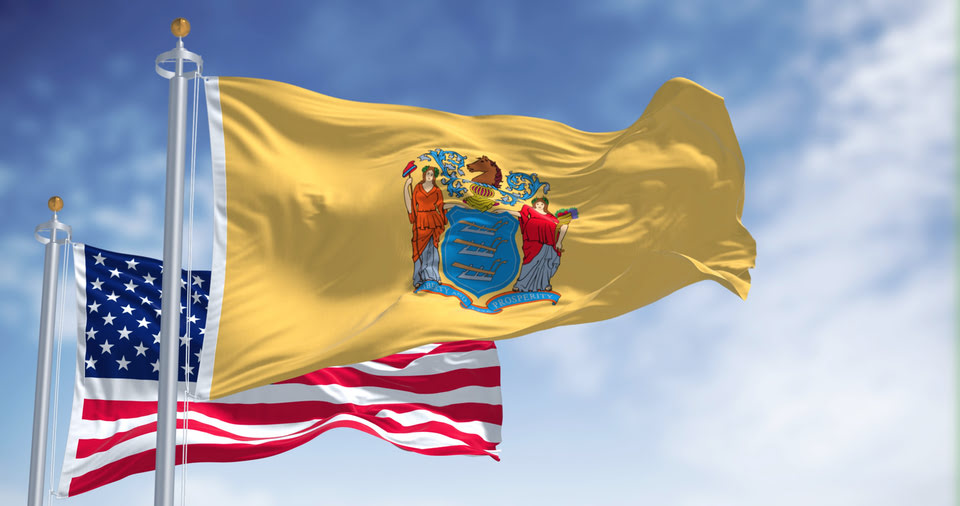
No Half-Measures
In a decisive move that’s sending ripples through the online gaming world, New Jersey Governor Phil Murphy has officially signed Assembly Bill A5447 into law, effectively banning sweepstakes casinos across the Garden State.
This isn’t just a new regulation, it’s a full-stop shutdown. The law, which took effect immediately upon signature on August 15, targets casino-style sites that have operated in legal gray zones using "promotional currency" or "free sweepstakes entries" to mimic real-money gambling.
And with New Jersey joining states like Nevada and Connecticut in outlawing this model, a clear message is being sent: the free-to-play loophole isn’t going to fly anymore.
What the Law Actually Bans
Sweepstakes casinos are often dressed up as games, but many feature real-money-style slot spins, blackjack tables, and jackpot draws, all using purchased or promotional digital tokens.
Under the new law, this structure is now explicitly illegal. A5447 outlaws:
- The “sweepstakes model of wagering,” where users gain entries via purchases or promotional activity.
- Any platform using digital currency or entries to simulate gambling outcomes.
- Offering cash prizes or digital rewards as a result of these games.
There’s no transition period or grace window… the law is in effect now.
Why Now? The State’s Bigger Regulatory Agenda
New Jersey isn’t just cracking down on sweepstakes casinos, it’s tightening the reins across the entire gaming sector.
Just a few weeks before this ban, Governor Murphy signed off on higher tax rates for online casinos and sportsbooks, bumping them to 19.75%. That move, which was originally floated at 25%, signals a clear direction: stricter oversight, bigger returns for the state, and stronger protections for players.
The sweepstakes ban fits neatly into that agenda. Lawmakers are targeting platforms that mimic gambling but dodge taxes, licensing, and safety requirements. And they’re not alone. From Mississippi to Montana, and Connecticut to California, states are waking up to the shadow economy of unregulated digital casinos, and pushing back hard.
For New Jersey, this law isn’t just about closing a loophole. It’s about drawing a line: If you're running casino-style games, you play by the same rules, or not at all.
The Opposition: Industry Fights Back
But not everyone sees this ban as a win. The Social Gaming Leadership Alliance (SGLA), the trade group for sweepstakes platforms like Chumba and LuckyLand, called the law “draconian.” Their executive director, former Congressman Jeff Duncan, didn’t hold back. He argues that the restriction:
- Ignores real consumer demand, especially for safe, low-stakes fun.
- Stifles innovation and kills jobs, dismantling a whole growing sector.
- Favors legacy gambling businesses, shutting out newer, smarter models.
The SGLA also criticized parts of the law like the strict $20 in-game purchase cap and bans on digital-value prizes. In their view, these features aren’t hiding gambling mechanics, they’re marketing tools used by tons of businesses to engage users.
What About Other States?
New Jersey isn’t alone – but it’s definitely setting a tone.
- Already Banned: Connecticut, Montana, Nevada
- Vetoed or Failed Attempts: Louisiana (vetoed by governor), Arkansas, Florida, Maryland
- Considering Action: California (proposals still in review)
Interestingly, states like Louisiana and Mississippi have opted for regulatory crackdowns over legislation, issuing dozens of cease-and-desist letters without needing new laws. Others may follow suit to avoid political pushback.
Final Word
New Jersey has made its stance clear: sweepstakes casinos have crossed a line. With the new law now live, the days of hiding behind “free-to-play” labels are over—at least in the Garden State.
As other states weigh their next move, one thing is certain: the regulatory tide is turning, and the sweepstakes model may be running out of road.
